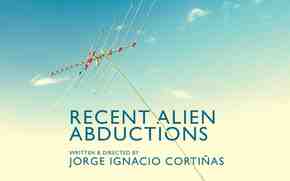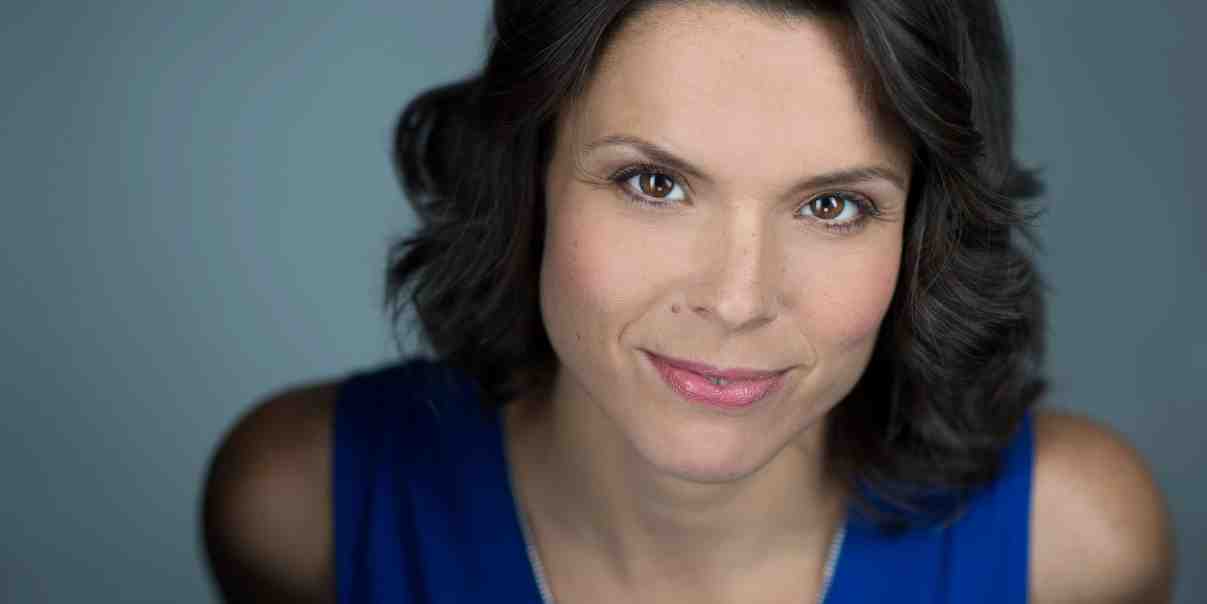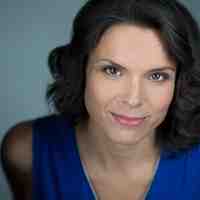

Identity, Methodology, and the Classics: A Chat with Vivia Font
Meet the Participants

Vivia Font (Actor) is a performer and theater maker. She performed in Recent Alien Abductions and Villa with Playco. She has worked on very new and very old plays at CSC, Rattlestick, NYClassical, The Huntington, NJ Rep, Merrimack, Oregon Shakespeare Festival, The Old Globe, Denver Center, and more. She has worked on a variety of voiceover projects including commercials and audiobooks. She teaches at Princeton, Marymount Manhattan College, and NYU, and produced/directed/created many different projects. TV/Film: FBI: Most Wanted, For Life, Love, Repeat, Sarbanes Oxley. NYClassical Associate Artist and Actors Center member.
Vivia Font is a New York City-based actor, writer, director. You may have seen her recently in readings at Clubbed Thumb, Playwright’s Realm, OSF PlayOn!, LAByrinth Theater, and Primary Stages-The Sol Project, Native Gardens (Merrimack Repertory Theatre), Romeo & Juliet (NY Classical Theatre), and VILLA (PlayCo). In Recent Alien Abductions, she will be playing Ana. You can find more information about her on her website: http://www.viviafont.com
Welcome back to PlayCo! In 2017, you were in PlayCo’s production of Guillermo Calderón’s VILLA. Tell us about your experience then in comparison to your experience now on Recent Alien Abductions.
So happy to be returning to PlayCo where I was involved with VILLA, one of my favorite experiences as an artist. While RAA and VILLA are two very different projects with different structures, I actually find they share a lot of similar themes. (Coincidentally enough, similar characteristics also exist in underneathmybed by Florencia Lozano, which I also got to be involved in at the Rattlestick). All three layer a societal trauma with a deeply personal one, and delve into the psyche of a society in how it copes (or doesn’t) with trauma and violence that it has simultaneously inflicted and been a victim to. In RAA, Jorge turns the focus on the microcosm of a family. He delves into the alienating, isolating and dangerous effects of denial and maintaining the status quo throughout what is a clear and deep human transgression.
Both VILLA and RAA are directed by the playwright – a very unique and wonderful experience. Both Guillermo and Jorge are strong visionaries, and had produced their plays before, so they have a strong sense of what works. I am finding a lot of similarities, and a tightness to the writing as well as the acting challenges which are quite wonderful. In VILLA, we were three characters that were on a similar journey – also set up with a similar apparent goal. In RAA, each character is strongly and individually different in such intentions. I play a co-conspirator of sorts. It’s quite different in that way.
On your website, you describe yourself as a person of “Latin American descent… a U.S. born child of immigrants… and an American.” I believe that line resonates with many people including our audiences. Can you tell us how your identity influences your art and artistry?
Gosh, I mean how can it not. Where we come from has everything to do with who we are and how we behave – whether we embrace it or vehemently fight against it.
What a great and tricky question to answer! It honestly made me think of identity and how we even define identity first and foremost. But then I could go on about that for a long time, and that’s not the question you are asking!
There are likely a great many ways my “cultural” identity influences my art subconsciously. Consciously, I think I approach my art in attempting to find the humanness in characters, and in stories. And this then becomes universal, not just American. I will say that growing up in many different cultures, I have always had the feeling of being slightly outside them all. This could be isolating and intriguing and I found that generally, I felt like the other – or a morphing of cultures. What I came to realize as I grew older was that many, many of us, particularly Americans, (because we are a land of immigrants and or a blend of a few), have this same feeling. We learn to code shift to fit in wherever we are, and we also forge a new way of existence and interpretation. We don’t follow the blueprint from before. Isn’t that similar to the grand experiment that is this country?
My experience growing up this way led me to want to learn the different codes, and experience different backgrounds and people, and try to understand them from the inside. I think as an artist I am intrigued by what might make us feel isolated, but ultimately what connects us when it does not appear by any obvious means that we can. Also, what we can do with the mix of influences that have been given to us.
You have worked both Off-Broadway and regionally as a stage actor, from Rattlestick in New York City to the Oregon Shakespeare Festival. Do you have a specific method to approaching all your stage roles or do you find yourself starting fresh each time?
I am certain there is a baseline to how I approach my work. I always read a script first to let it wash over me and give me its first impressions. Then I go back over it again and start working from the text – usually early on I am pretty text-based, unless there is a specific reason not to be. (Some sort of collaboration based on physical work, for example, on something that has not been written yet.) After I gather as many clues as I can textually, I then take a different route for every production. I am not a one-method woman, you could say. I’ve studied various techniques, and have been given many tools as “a way in” to characters. I also believe strongly in instinct. I’ve worked “inside out” and “outside in.” I love thinking about behavior, and sometimes I allow the text to take me where it needs.
Ultimately, I am journeying to find the bridge between the expression of a performer and the truth of the piece. Whatever I am working feels as if it has to resonate from a sort of a heartbeat that is unique to each character. And also to a project as a whole. Also, the playground — the writing, the director, the actors — affect the project as well.
As an actor, writer, and director, you’ve worked on several productions and works related to Shakespeare and/or Greek mythology. What is it about these classic stories that draws you in as a storyteller?
Isn’t there a saying that there are only really 8 stories or something and that we just keep retelling them? By this theory, I think I just like the originals?
Hm.
I love Greek mythology, and I love the epicness of those stories. They are usually visceral and fairly clear cut (which is kind of a relief when you think about it sometimes!) I mean, subtle they are not. They are extreme and intensely creative. And that’s fun! They are the first ways we tried to explain and understand human behavior and the world. And ways to discourse about it. And we still are.
And Shakespeare, well — I was definitely influenced by doing Shakespeare during the summers in high school. The language, the poetry, just gives me so much. I always feel smarter when I am doing Shakespeare — my vocabulary improves and I feel a step up in my mental and physical agility. Silly to admit, but true. But it also keeps me physically in a certain kind of shape. The music of the language, while you are speaking or listening, makes you use your entire being — and it feels great! It seems to me Shakespeare loved people very much. He explored so many stories, and so many characters in such a curious and generous way. It is joyful to work on it.
Regarding alien abductions, do you believe in aliens or life beyond this earth?
Why not?! I mean, we can’t really be the only ones out here…
Related Productions

Written by
Cynthia Tong